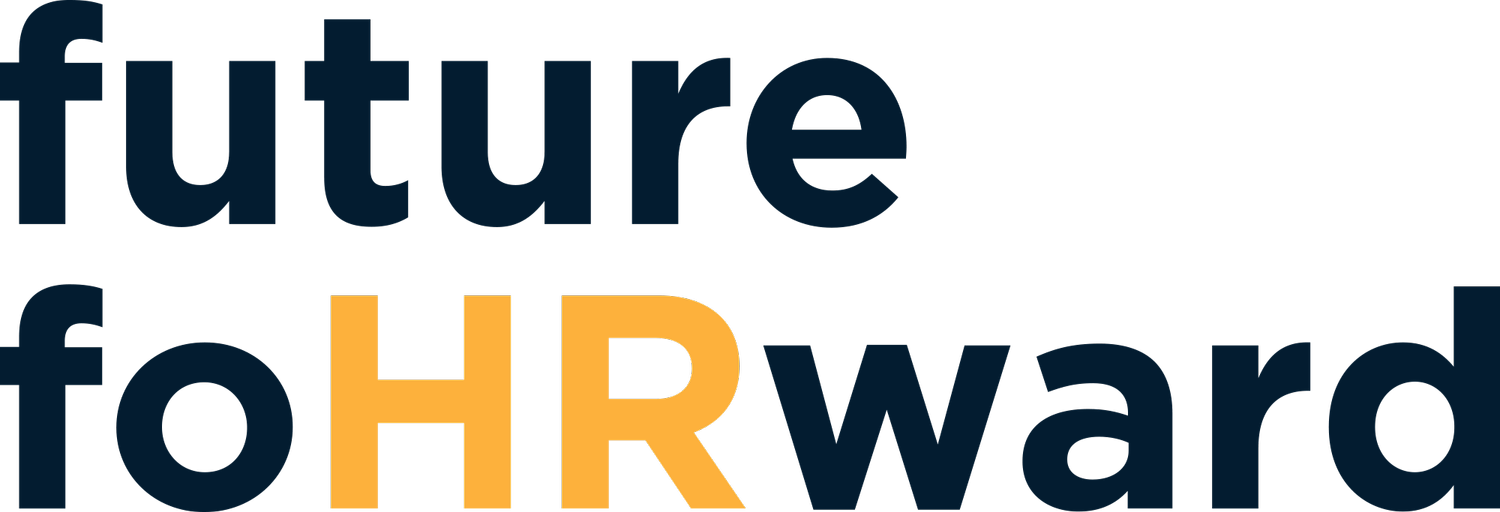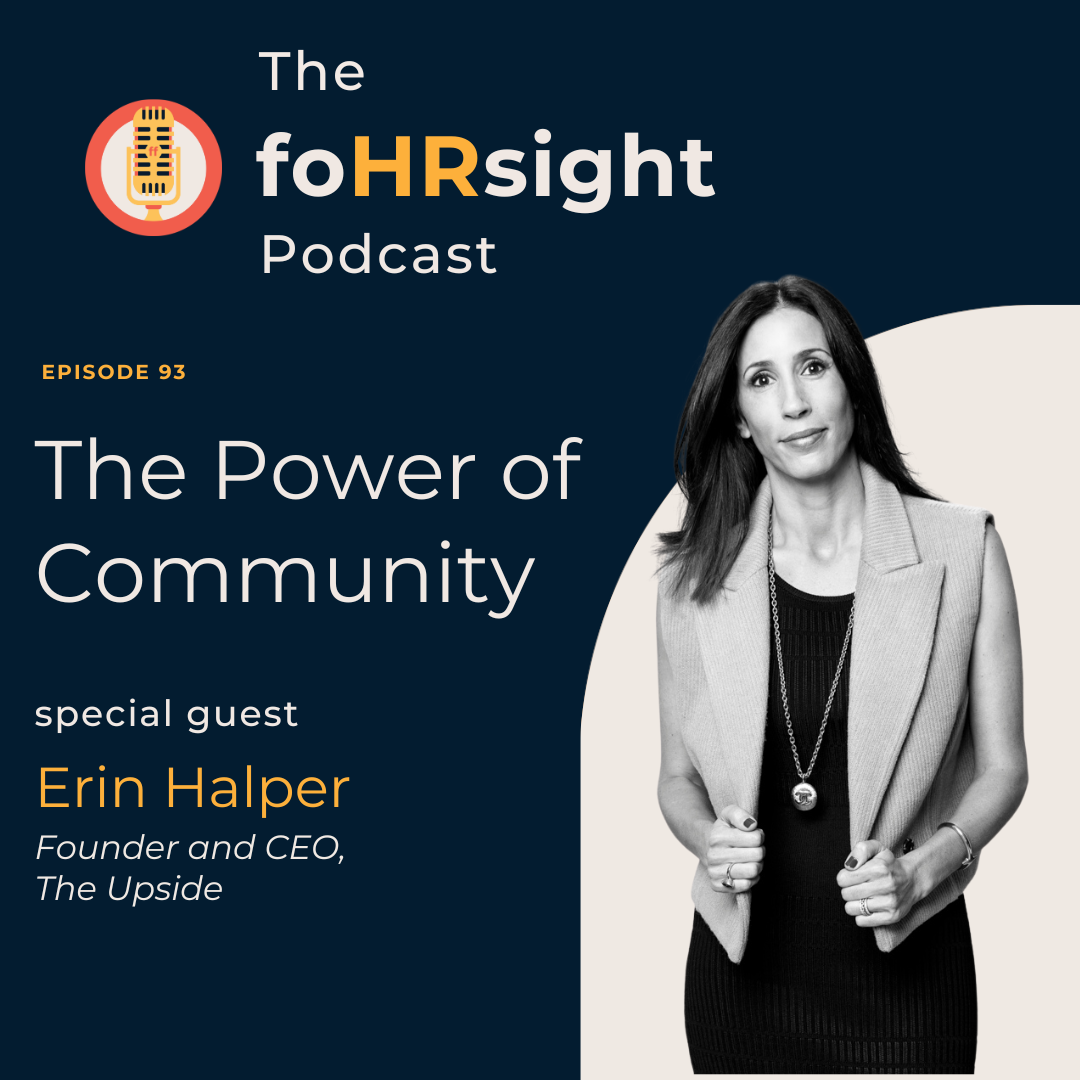the foHRsight podcast: The Power of Professional Communities
In today's rapidly evolving workplace, being part of a professional community isn't just beneficial—it's essential for growth and excellence. This was the central theme of a recent conversation between Naomi Titleman and Erin Halper, founder and CEO of The Upside, who shared valuable insights about the transformative power of professional communities.
Why Community Matters
Communities have always been fundamental to human experience—from school groups to religious organizations, we naturally seek connection with like-minded individuals. But in our professional lives, this need becomes even more crucial. As Halper explains,
"We are part of communities anyway... We're spending such a huge part of our day at work. Why wouldn't you want community around that?"
The key distinction is that professional communities aren't just about networking—they're about growth and transformation. As Halper emphasizes,
"Community is not for everybody. Community is for people who want more. It's a certain type of person who personal and professional growth."
Finding the Right Community
When seeking a community to join, it's crucial to understand what you're looking for and who's leading it. Halper shares this valuable insight: "If you don't align with the community's values and how they run their community, you're not going to like the community. It's not gonna be a good fit." She adds that the leader's involvement is equally important:
"When you're in a community where the founder is uninvolved and they're running it behind the scenes... that's going to be a very different experience than when the founder is hands-on, is with their members, leading their members."
HR Professionals as Natural Community Builders
For HR professionals specifically, community involvement takes on special significance. As Halper notes, "HR professionals are already community builders, they are building their own communities, or at least they have the opportunity to build community within their companies." This unique position makes it even more important for HR professionals to experience and understand effective community building firsthand.
Making the Most of Community Membership
Success in a community isn't about attending every event or utilizing every resource. Instead, it's about understanding "the ROI of a single action" and "the ROI of a single relationship." The key is to create your own journey within the community rather than trying to do everything.
Signs You Need Community
If you find yourself consistently searching online for answers or relying on just two or three friends for professional advice, that's a clear sign you need a broader community. As Halper points out, "One or two people's opinions is not enough data for you to make a really good decision."
The Impact on Professional Growth
Being part of a professional community can dramatically expand your perspective and opportunities. It provides a space where you can "get dozens of answers and thoughts from people from all sorts of backgrounds who are at a certain level." This diversity of thought and experience is invaluable for professional development and decision-making.
For HR professionals specifically, community membership offers a crucial sounding board for testing new programs and approaches, getting feedback on hiring decisions, and finding innovative solutions to workplace challenges. As Halper concludes, it "helps you do your job so much better and enjoy the job and see a new type of purpose and impact in the job when you have your own board of directors, so to say, in your corner who you can always lean on."
Moving FoHRward
The message is clear: in today's complex professional landscape, we all need community. It's not just about networking—it's about growth, support, and achieving excellence together.
For more on the importance of community for HR, check out our Q3 whitepaper: The Shoemaker’s Children: HR Needs Community Too here.



